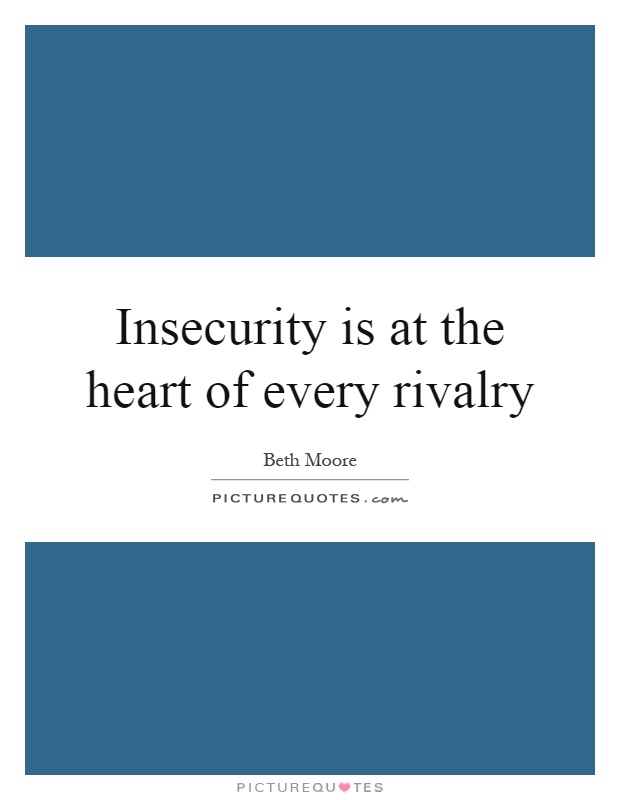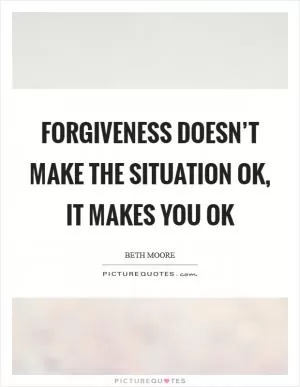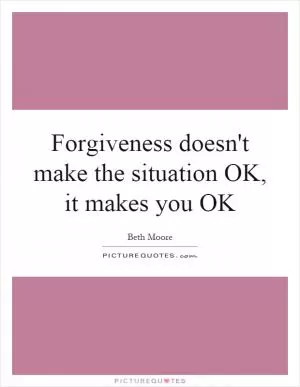Insecurity is at the heart of every rivalry

Insecurity is at the heart of every rivalry
Insecurity is a powerful force that can drive individuals to compete with one another in a never-ending cycle of rivalry. This concept is particularly evident in the case of Beth Moore, a prominent Christian author and speaker who has faced criticism and backlash from within her own community.Moore's rise to fame within the evangelical world has been met with both admiration and skepticism. While many have praised her for her powerful teachings and inspirational messages, others have questioned her authority and credibility as a female leader in a traditionally male-dominated space. This tension has fueled a sense of rivalry among those who support Moore and those who seek to undermine her.
At the heart of this rivalry lies insecurity – the fear of being overshadowed or replaced by someone who challenges the status quo. For those who have long held positions of power and influence within the evangelical community, Moore's success represents a threat to their own authority. This insecurity can manifest in subtle ways, such as dismissive comments or passive-aggressive behavior, but it ultimately stems from a deep-seated fear of being deemed irrelevant or obsolete.
On the other hand, Moore herself has not been immune to feelings of insecurity. Despite her accomplishments and accolades, she has faced criticism and scrutiny from those who question her motives and beliefs. This constant scrutiny can erode one's sense of self-worth and fuel a desire to prove oneself to others. In this way, insecurity can drive individuals to engage in rivalries as a means of asserting their own worth and value.
Ultimately, the cycle of rivalry fueled by insecurity can be damaging to all parties involved. It can create a toxic environment of competition and comparison, where individuals are pitted against one another in a never-ending battle for validation and recognition. In order to break free from this destructive cycle, it is essential for individuals to confront their own insecurities and work towards building a sense of self-assurance and confidence that is not dependent on external validation. Only then can true unity and collaboration be achieved, free from the constraints of rivalry and insecurity.












 Friendship Quotes
Friendship Quotes Love Quotes
Love Quotes Life Quotes
Life Quotes Funny Quotes
Funny Quotes Motivational Quotes
Motivational Quotes Inspirational Quotes
Inspirational Quotes